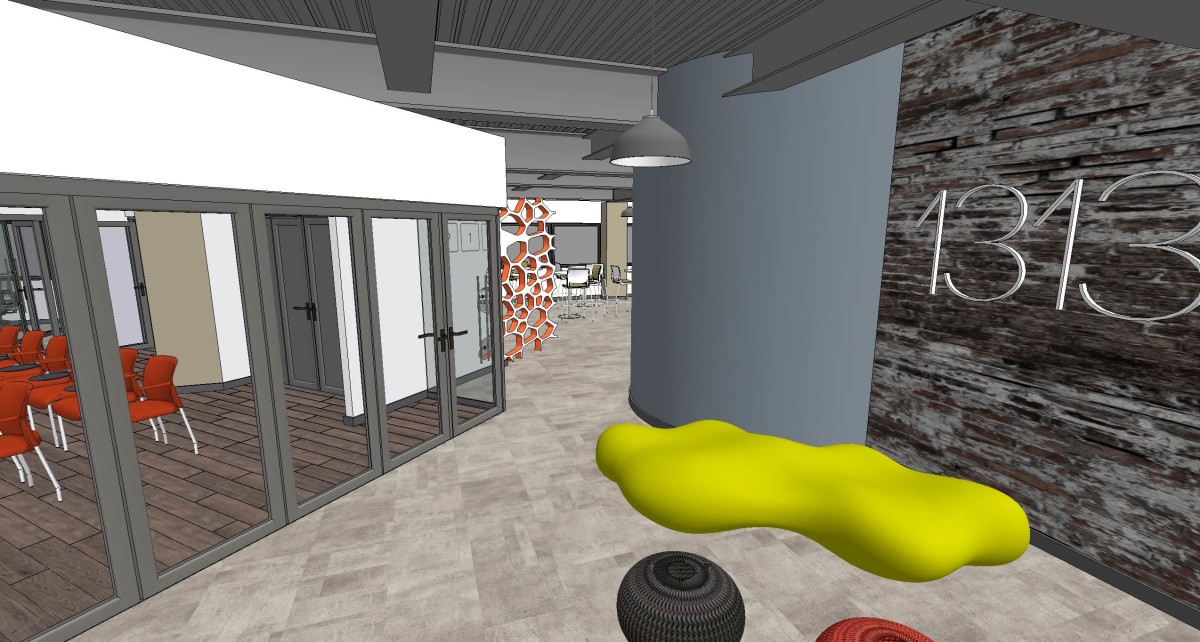Puerto Rico is investing in startups as part of the strategy to help the future economy and create a culture for change — something this American island territory needs as bankruptcy warnings continue to swirl.
Startups rely on advisory boards to help make hard decisions, a key strategy identified by government representatives at a recent summit to address the debt crisis. We need more entrepreneurial perspective here, and it’s coming.
Grupo Guayacan, Piloto 151/Founder Institute, Parallel18 and even PR Science & Trust (sponsors of I‑Corp’s Customer Discovery Program) are active participants in creating a vibrant (and evolving) startup community, and in promoting the opportunity to get involved.
I am a mentor in Grupo Guayacan, Piloto 151/Founder Institute and Parallel18, and I’m actively pursuing cofounding several startups. I believe that for an ecosystem to thrive, you need experienced founders growing local talent in a very hands-on, participatory way.

Rendering of the forthcoming Parallel18 incubator in San Juan, Puerto Rico. (Courtesy image)
I see Santurce-based Parallel18 in the San Juan capital as a unique and important part of the burgeoning startup culture for three reasons:
- It will infuse the local community with new job opportunities and opportunities to learn how to participate and succeed in a startup.
- As 60 percent of Parallel18 applicants come from outside the island, it will promote talent diversity and better understanding of the global economics required to create a startup.
- The funding provides the autonomy for a company to focus on the commercial viability of their idea, facilitated by having the ability to draw a salary and hiring additional resources and services.
For a tech startup, Puerto Rico is best suited for intellectual capital (not manufacturing) so companies providing software, financial services, etc. are ideal. Establishing a technology startup company in Puerto Rico has a tremendous advantage in being part of the United States, with a well-defined rule of law — and better weather than most other burgeoning tech hubs. (Sorry, Philly.)
Building a company under U.S. federal law affords founder safety, knowing that their contracts can be enforced and their intellectual property is protected. The island also has a much better educational backbone than much of Latin America and the Caribbean. The cost of doing business is considerably less than the continental U.S. In my experience, labor and office space cost 50 percent less than in Boston.
I see Parallel18 as a barometer through which the government can better understand the needs of companies created using its highly promoted tax incentives. A lot of work still needs to be done to make Puerto Rico an efficient place for business. The voice from annual participation of 80 new companies in Parallel18 and an additional 200 companies that participate in the various accelerators and incubators throughout the island will help challenge the bureaucratic procedures involved in establishing a company and driving efficiencies.
Lastly, tech startups will feed from local talent pools in the higher education institutions. Parallel18 companies will hire local resources and services to establish themselves.
The requirements of these firms will help to define a new standard of services for payroll, accounting, legal and marketing. The requirements will have a further effect on the higher education systems as Parallel18 companies will hire talent from local universities and create new demands for skills and university career offices. Institutions will benefit from the commercial advantage of becoming better custodians of their students’ careers by shoring up their standards of student placement, recruitment and entrepreneurship, thus contributing to a world-class educational environment.
Before you go...
Please consider supporting Technical.ly to keep our independent journalism strong. Unlike most business-focused media outlets, we don’t have a paywall. Instead, we count on your personal and organizational support.
Join our growing Slack community
Join 5,000 tech professionals and entrepreneurs in our community Slack today!

The person charged in the UnitedHealthcare CEO shooting had a ton of tech connections

Delaware students take a field trip to China using their tablets and ChatGPT

From rejection to innovation: How I built a tool to beat AI hiring algorithms at their own game

